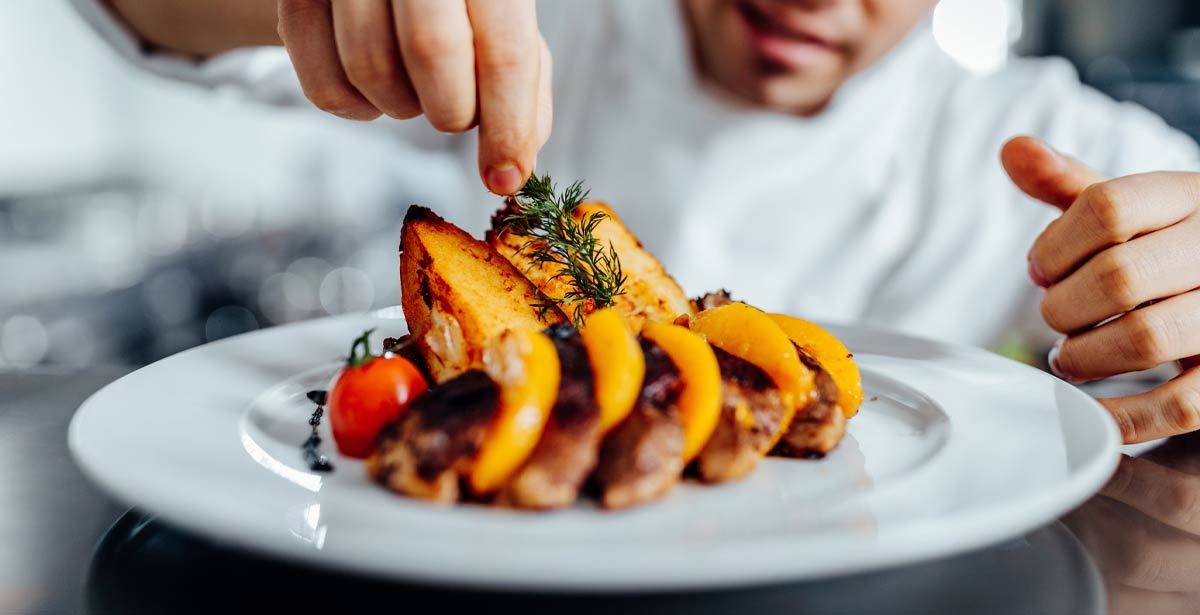Jobs
16 Essential Food Consultant Skills To Impress Employers

Being a food consultant and improving the overall food experience for customers can be a highly rewarding and interesting career path. A food consultant ensures that appropriate food safety protocols are in place for food preparation, production and packaging. Understanding the role of a food consultant and the skills critical to the job can help you decide if this is the right career path for you.
In this article, we list some duties of food consultants and outline essential food consultant skills to help you excel in this role.
What does a food consultant do?
A food consultant is a gastronomy, food quality and food safety specialist who assists businesses and professionals in the food industry in the growth and enhancement of their food service operations. They can work with restaurants, food manufacturers, educational institutions and any other type of food service establishment. There are several occupations available in this field, and a food consultant’s career path is dependent on their area of expertise. Food consultants are typically in charge of menu engineering, design and food costing. Below are some other common duties food consultants have:
-
Creating business strategies: Food consultants perform in-depth customer and market research, noting competitors and target demographics. This provides them with the information required to establish company plans, which they communicate through extensive multipage reports that involve analysis, forecasts and idea creation.
-
Offering suggestions for menu items: Food consultants begin curating menus after reaching an agreement with owners on the desired branding. When selecting menu items, food consultants consider a variety of factors, such as marketability, simplicity of presentation, manufacturing costs, quality and authenticity and pricing points.
-
Improving management practices: Food consultants examine a restaurant’s operations and make recommendations to boost efficiency and save expenses. They may prepare sales and profit estimates, establish strategic budgets, provide assistance with marketing and social media and recommend software products.
-
Examining the design and layout of an establishment: A well-designed kitchen that’s conducive to efficient food preparation is a requirement for many food establishments. Food consultants assess the kitchen layout, aid in the selection of equipment, evaluate the fulfillment of electrical and plumbing system requirements and check service areas for cleanliness, aesthetics and atmosphere.
-
Enhancing hiring and training processes: Clients may seek the assistance of food consultants to enhance their personnel hiring and training processes, particularly when implementing new business initiatives. Food consultants can help with every stage of the employment process, from creating detailed job descriptions to conducting interviews.
16 food consultant skills
An effective food consultant can demonstrate their abilities to solve issues or enhance business processes. Here are some essential food consultant skills to develop:
1. Knowledge of safety procedures
Safety procedures are a collection of established processes that assure the well-being and security of people, resources and the workplace. A corporation adheres to safety protocols since they not only keep customers and staff safe but also aid in the adherence to legal regulations. Food consultants may incorporate the following safety practices on their resume to highlight their safety procedures skills and knowledge:
-
Implementing safety measures and correct equipment usage in accordance with existing compliance and operating policies
-
Scheduling occupational safety and health training, proper cleaning agent usage and workplace safety practices
-
Conducting employee training in equipment operation and work and safety practices
-
Training new associates in food preparation, service, cleanliness and safety standards
-
Reporting any safety incidents to the manager in charge
2. Knowledge of garbage collection and pest control
Most consumers trust a restaurant to take care of their well-being. This means it’s important for a highly qualified food consultant to be able to advise on the best approach to manage waste and keep the kitchen clean and organized. Clean and hygienic food storage and production ensure the best quality for a restaurant at all times.
3. Food production skills
Food production encompasses all aspects of converting fresh ingredients into food items. Washing, cutting, freezing, packing, fermenting, canning or using food additives are all examples of activities within food production. It’s critical that food consultants understand the proper methods for producing edible food and can examine food production techniques for preserving and serving food in a healthy and effective manner.
4. Communication
Written and vocal communication skills are essential for food consultants, whether they’re partnering with managers, cooks and other food experts, meeting with business executives or dealing directly with clients. Throughout the day, they often make phone calls, send emails, have in-person meetings and prepare treatment plans. Strong communication skills can assist them in developing relationships with the individuals they work with and successfully explaining goals and food management approaches.
5. Problem-solving abilities
Food consultants employ problem-solving abilities to help their clients perform better. For instance, if a customer wants to create a nutritious dinner but lacks the necessary components, a food consultant may recommend a substitute item or an alternative recipe. Food consultants develop adaptable action plans that reduce expenses after identifying problems and possibilities for development.
6. Conceptual thinking skills
Conceptual thinking refers to the ability to be imaginative and creative. Food consultants need a great sense of awareness and intuition, or the ability to elicit thoughts from those who need assistance with putting their ideas into words. In a group brainstorming session, food consultants may ask intriguing questions to encourage others within an organization to think conceptually.
7. Leadership skills
Food consultants frequently work in partnerships with other food service professionals, such as cooks, waiters and managers. Leadership abilities may assist them in motivating their team and encouraging others to collaborate to give exceptional customer service. They may also use their leadership abilities to allocate jobs and motivate their team to complete work on time.
8. Training skills
Food consultants may have to create and implement personalized customer management training programs that align with the operating objectives of a specific firm. It’s essential for food consultants to excel in implementing training programs to teach employees how to use tools and equipment properly. They can help enhance events and sales by using and developing local training programs.
9. Business development
Food consultants have a large influence on a firm, so it’s important for these professionals to think about long-term outcomes and consider a variety of aspects to get a good understanding of how a business functions. They may use business development skills to expand the business’ client base and increase sales. This might include developing marketing materials, holding events and networking with prospective clients. Food consultants may also use business development skills to acquire new clients and increase earnings.
10. Product development
Product development is the process of generating a product, from concept to final product release. Product development is a multistage process that culminates in the introduction of a product into the market. Food consultants can often identify a need, establish an opportunity, conceive a product and offer a solution.
11. Knowledge of the food industry
Food consultants typically have prior experience in the food sector. They may have previously worked in restaurants, bakeries or other food-related establishments. This background might assist them in comprehending the food sector and the issues that restaurants and other food enterprises encounter. It can also assist them in developing methods for overcoming potential obstacles.
12. Attention to detail
It’s essential for food consultants to be detail-oriented and observant. This is particularly important because much of the information they work with comes from personal observation. From customer reactions to kitchen staff activity, food consultants have to pay attention to every detail.
13. Risk analysis in the food sector
It’s important for a food consultant to ensure safety in the food production process by addressing issues like microbiological, chemical and physical contamination. Food consultants need to be knowledgeable and skillful in pre-incident planning, incident responses and post-incident recovery tactics in the food sector. For instance, it’s important for food consultants to know how to do product sampling and track, retrieve and destruct products if necessary.
14. Teamwork and collaboration
It’s critical for food consultants to develop positive working relationships with restaurant owners and employees. They need to respect and evaluate the client’s vision and preferences while recommending changes. It’s essential that they have good teamwork and collaboration skills to enable them to work with other parties.
15. Restaurant operations
This skill involves knowing the full restaurant operation plan and all parts of the daily restaurant administration. Restaurant operations comprise all actions pertaining to meal preparation, customer service, cleaning procedures, raw material purchases, accounting, reporting, food inventory and general restaurant upkeep. It’s important for food consultants to be well-adept in all aspects of restaurant operations, from culinary and staffing operations to bar operations.
16. Creative thinking
Creativity is a highly valued trait in industries like food and gastronomy. Creative thinking provides food consultants with ideas beyond the industry’s standard and commonly recognized approaches to business. It promotes brainstorming and listening to ideas from a diverse range of people, allowing food consultants to use their creativity in menu and ingredient selection.

Essential Food Consultant Skills
